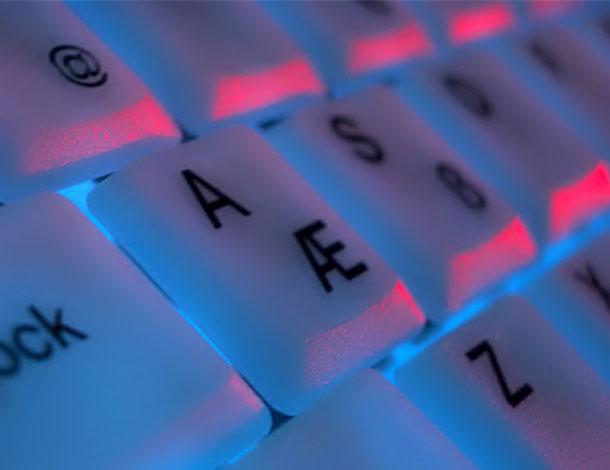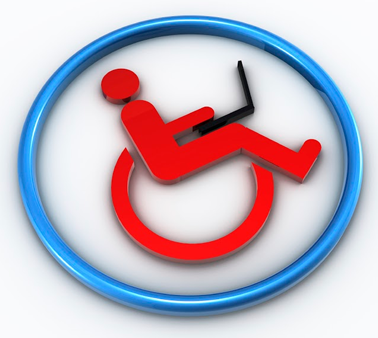How the internet has changed the lives of disabled people and other marginalized groups.
One of the biggest barriers we face as disabled people is lack of accessibility, which makes it difficult for us to integrate successfully into society.
While there still remains a great amount of work to be done, the internet has provided a door to a greater world to disabled people and as such grants access to a wider community. As people from around the world can access the same information at the same time, it makes it easier to share physical, emotional and informational resources. Social media can be used to create communities that span thousands of miles of physical distance and yet are united in a single place on the virtual landscape.
These communities serve the same function that in‐person communities serve, while being more accessible to a wider variety of people.
Internet communities provide emotional support and help with communicating needs to friends and family.
The sharing of stories helps us feel less alone. This is especially helpful for people who struggle with social anxiety or who have conditions that can hinder regular socialization. We know from experience that socialization and social contact are important, and in a world where many physical rooms are closed to us, the internet acts as a grand meeting hall.
The information provided by these communities makes it possible for people living in remote areas to find support and connection. Gay and trans children in highly religious communities can find explanations of what their feelings mean without the taint of religiously excused bigotry. Disabled children can find others to show them that they aren’t wrong or bad or flawed for being disabled. They can learn that they are not alone.
These communities share money in the form of crowdfunding to help with everything from paying for medical needs to funding a much needed vacation. esources can be shared in such a way as to keep multiple people afloat. Even severely low‐income communities, like those often populated by disabled people, can access resources by spreading the word regarding a need. Even if your friends don’t have money, they may know people who do and who you could not have otherwise accessed.

These same crowdfunding approaches can also be used to promote writing and art, as well as providing access to work that is less physically taxing. The internet has been a saving grace for many people who would otherwise be unable to afford their medicines, or surgeries, or other medical interventions.
Money is not the only shared resource. Information can be just as valuable, especially when it comes to managing difficult conditions or treating symptoms.
There are many communities devoted to a specific disability, where people share information on medications that have worked for them, life hacks that can improve quality of life, related new studies, information about laws and how people can protect themselves, tips on how to apply for benefits, and lists of available resources ‐ financial or otherwise ‐ that may be available ‐ as well as information about predators and abusers who prey specifically on vulnerable communities.
Some of this information can empower patients when dealing with hostile or flummoxed doctors. The internet also helps create a megaphone through which marginalized communities, like disabled people, can bring attention to important issues without relying on traditional media, which often under‐report occurrences related to those communities or present the facts with prejudice. For example, when autistic and other disabled children are murdered, many media outlets make it seem like an act of mercy rather than an act of bigotry‐informed violence.
The victim is blamed for creating an unbearable situation for the parents by merely existing.
Just recently, a movie came out that presents death as better than living as a disabled person. It is painted as a tragic love story, even as it is being heavily criticized by disabled people as spreading harmful stereotypes about disability. Social media is a tool with which marginalized communities can force authorities to face the realities of the world we live in. It creates a light that shines on the systemic oppressions.
Like other media it holds up a mirror to society, but it does so on a global scale. Unlike other media however, it can be accessed by people who might not otherwise have the attention of news sources. Never before have people across the world been able to instantaneously learn of and respond to issues affecting the other side of the globe. Now, more than ever, governments, politicians, and other authoritative bodies have to deal with public relations on an international scale. More attention can have negative consequences however. Many women and non‐binary individuals have found themselves the targets of harassment campaigns.
Many have and will receive threats of death, rape, and assault.
Some have had their private information revealed to a hostile populace, resulting in harassing phone calls, mail, and stalkers. It’s a technique known as doxing and is very popular with anti‐feminist trolls and trans‐exclusionary groups. In some cases, people have been outed to employers and suffered the loss of employment for that reason. More than one blogger in the various parts of the world has faced arrest and death for being open about their lack of faith or for criticizing aspects of the government, religious leaders, or otherwise.

The same social media platforms that make it possible for marginalized communities to bring attention to important issues are also used to abuse those same people. Facebook community standards complaints, for example, have frequently sided with privileged groups over vulnerable communities: banning marginalized people for calling out oppressive language and abuse, while leaving up pages dedicated to spreading hateful ideologies. Memes calling out privilege are taken down, while those showing violence against marginalized people are left up.
As the internet becomes more and more a tool for social change, governments have become increasingly interested in restricting what can be said, and how private information is accessed by authoritative bodies like the police.
In countries like North Korea, access to the internet is completely blocked. In others, specific sites may be banned or blocked from being accessed. In both Canada and the United States, laws have been floated that would make accessing private information regarding internet use accessible to law enforcement agencies without a warrant. Others proposed laws criminalize criticism of media, the government, or other aspects of society and silence voices of dissent. Whether by providing community, information, news, or acting as a megaphone, the internet has been a great force for social change. As long as it remains free and unrestricted it will continue to be a force for change.
About the author
Ania Bula, author of Young, Sick, and Invisible, lives and writes in Ottawa, Canada with her wife and their menagerie of pets. Together they write a social justice themed blog called Alyssa and Ania Splain You A Thing.
